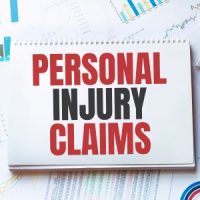Court Says You Can’t Waive Strict Liability Claims

Hold harmless agreements (sometimes called exculpatory clauses) are agreements that you sign that make you agree that should you be injured on someone else’s property, you will not have the ability to sue. These kinds of agreements are often used when you engage in sports, activities, athletic events, extreme sports, or action or activity parks.
These contracts can be defeated, and there are exceptions to them. But they do make it much harder to sue, and a properly drafted exculpatory agreement can, in fact, prevent you from suing for your own injuries.
Strict Liability
Most of these hold harmless agreements tend to hold the defendant harmless for any claims for its negligence. But negligence is sometimes not the only theory of recovery for a victim. In some circumstances, the victim can sue for strict liability.
Strict liability allows a victim to sue, even if the defendant actually did nothing wrong. The mere fact the victim has been injured, is enough to allow the victim to win a case against a defendant.
Strict liability isn’t used in all cases. It is normally and traditionally applied in products liability cases, but also has application in dog bite vases, or cases where injuries are caused by inherently dangerous activities, like when using weapons, toxic materials, construction equipment, or other items that are very likely to cause injury or harm.
Exculpatory Clauses and Strict Liability
In a recent case, a consumer bought a motorcycle from a dealer. The motorcycle was defective, broke down, and the victim was seriously injured. The victim tried to sue the dealer, but the victim had signed a hold harmless agreement that waived the right to sue for negligence.
However, the victim sued for strict liability. The dealership said that this didn’t matter—the hold harmless should be applied to all claims, even the strict liability claim.
But the court disagreed, and found that the agreement did not specifically waive strict liability claims. What is notable is that the court went even further, going as far as to say that even if the hold harmless had specifically listed strict liability, that would not matter, because it is against public policy to waive strict liability claims.
Strict liability is intended for situations that are very dangerous, and where the victim may not have the ability to ever determine who is liable. As such, the court said that it would be unfair to undermine a longstanding part of our legal system, with a contractual provision.
In other words, even if the hold harmless had waived strict liability, the law in Florida would not allow that kind of provision to be enforced. Practically, that means that injured consumers can never be forced to waive strict liability claims. This is a big win for consumers injured by defective products, but also in any other accident, where strict liability theories of recovery may apply.
What kind of claim do you have? We can help you figure out the best options to get compensation for your injuries. Call the West Palm Beach personal injury attorneys at Pike & Lustig today.
Sources:
casetext.com/case/harrell-v-bms-partners-llc
law.justia.com/cases/florida/fourth-district-court-of-appeal/2022/



